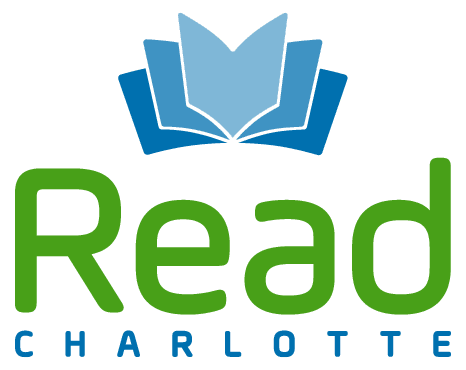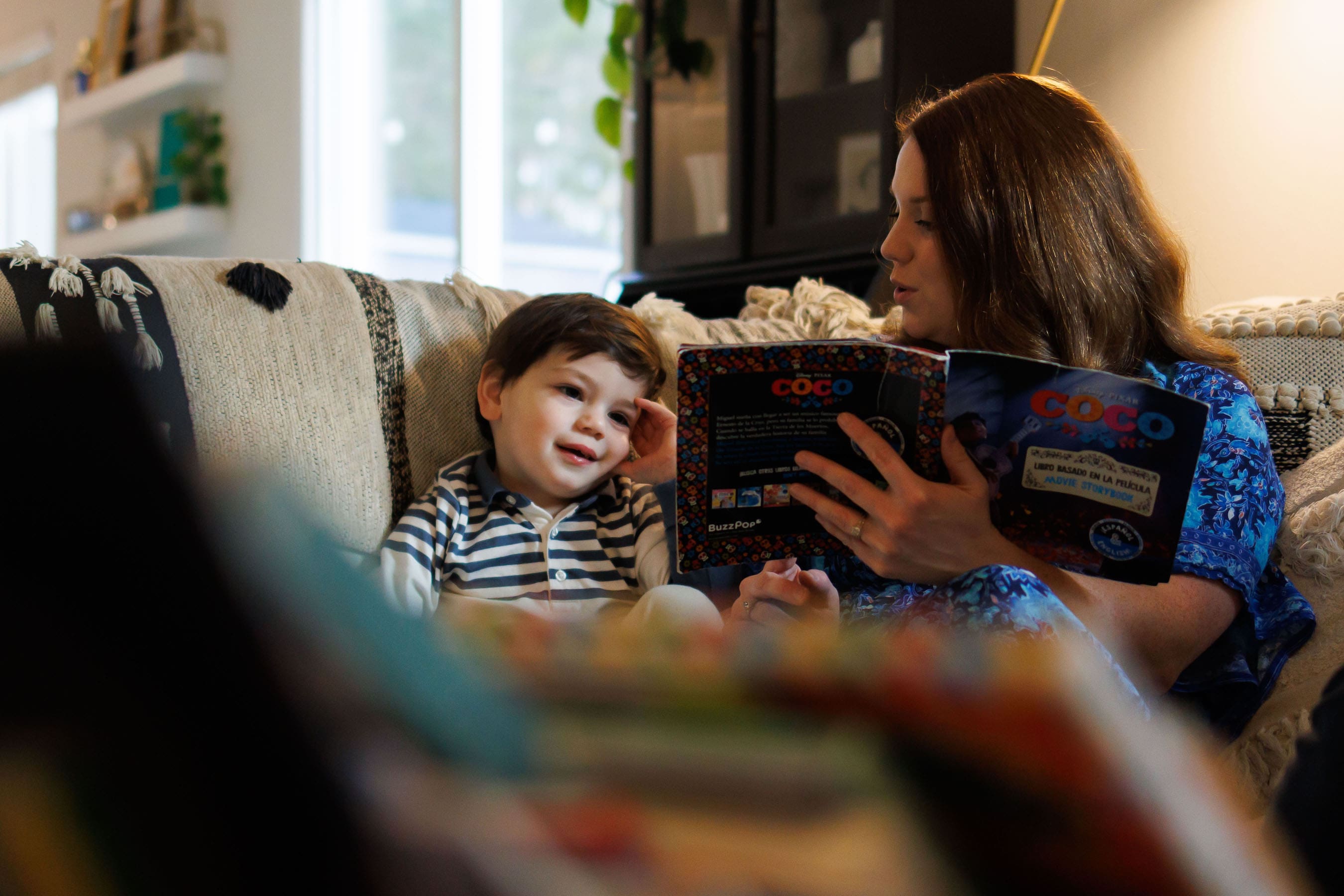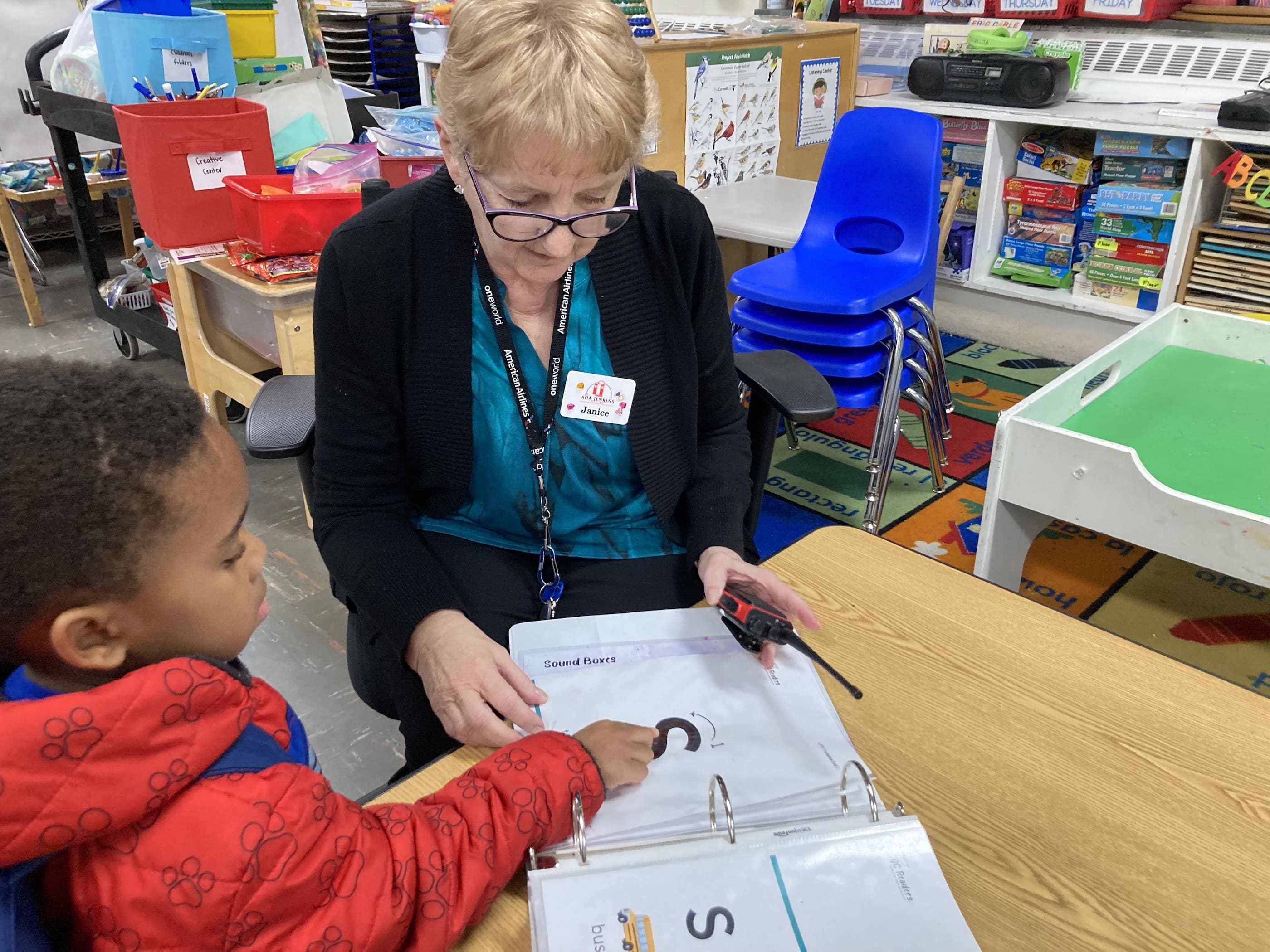Researchers now estimate that 95 percent of all children can be taught to read by the end of first grade, with future achievement constrained only by students’ reasoning and listening comprehension abilities.1
– Louisa Moats, co-creator of LETRS
Embracing reading science to improve outcomes
At Read Charlotte we use insights from high-quality, rigorous research to seek leverage points that can help our community improve early literacy from birth through third grade. For example, we learned a few years ago through local data that the entire size of the third grade reading achievement gap prior to the pandemic was present by the end of kindergarten. This was a major impetus behind our work in 2023 to develop Queen City Readers to increase local tutoring capacity to build basic word reading skills of kindergarten students.
Today there is greater focus than ever on the “science of reading” at both the state and local levels. Charlotte-Mecklenburg Schools (CMS) places great emphasis on high-quality, explicit instruction in foundational reading skills through LETRS teacher training, high-quality curriculum, and classroom interventions. We are already seeing gains in the numbers of K-3 students achieving grade-level word reading skills in North Carolina and Charlotte-Mecklenburg. An August 2023 state report showed steady increases in word reading skills for North Carolina K-3 students throughout the 2022-2023 school year. A December 2023 staff report to the CMS school board showed annual improvement in Fall K-3 word reading scores for Black and Hispanic students over the past three years.
Another leverage point – listening comprehension
An August 2020 report found that roughly a third of North Carolina third graders who did not score at College and Career Ready (CCR) on the state third grade reading assessment in Spring 2018 had started the school year in Fall 2017 meeting grade-level expectations for word reading skills. More recently, 57% of North Carolina Grade 3 students met grade-level expectations for word reading skills in Spring 2023, but only 29% of this same state-level cohort scored at CCR on the Spring 2023 reading assessment. The North Carolina state reading assessment focuses on grade-level reading comprehension abilities. Reading comprehension is the ability to process written text, understand its meaning, and integrate it with what the reader already knows.
How do we close this gap? Reading science strongly points us in the direction of simultaneous focus on both word reading and listening comprehension skills.2 Here are some relevant research findings:
- Preschool oral language strongly predicts later reading comprehension through listening comprehension.3
- Low language skills at Pre-K are a better predictor of later reading comprehension difficulties than low letter knowledge.4
- While word reading skills are the leading predictor of reading comprehension in kindergarten and first grade, as early as second grade, listening comprehension becomes the greatest predictor of reading comprehension as children develop automatic word recognition abilities.5
- As many as 70% of children who read poorly in second grade had significant deficits in language skills during kindergarten.6
- Because reading comprehension hinges on language ability, targeting language comprehension, and its assessment, is critical to equitably support multilingual learners’ reading comprehension.7
- By about 10 years of age, children’s language skills contribute more strongly to their reading ability than their decoding skills.8
What is listening comprehension?
In the earliest years, making the connection between the sounds in spoken language and their representation in written language is the primary challenge of learning to read. This is why teaching children to sound out words with systematic phonics instruction is so important. But as children learn to read words automatically, listening comprehension, which early on plays a supporting role, shifts to playing a leading role in shaping the rate of growth of their reading comprehension skills. This shift relies upon prior development of language skills, which begin to develop well before children start elementary school. The challenge of building listening comprehension skills in English is even more complex for multilingual learners.
Listening comprehension consists of both lower-level skills (vocabulary and grammar) and higher-level skills (perspective taking, inference, reasoning, and comprehension monitoring). Perspective taking (perceiving a situation or understanding a concept from an alternative point of view) has a big impact on comprehension of narrative texts. Researchers also find teaching text structure (e.g. cause and effect, compare and contrast, etc.) is helpful for comprehension of informational texts.
Current reading science finds that listening comprehension generally precedes reading comprehension. The major difference between listening comprehension and reading comprehension is the presence of oral or written text. This means that by building children’s lower- and higher-level listening comprehension skills, we are preparing them to have strong reading comprehension abilities once they have proficient word reading skills.
The December 2023 staff report to the CMS school board on Black and Hispanic student reading performance referenced above provides some relevant insights. The report showed that a minority of the combined subgroups in grades K-2 started the 2023-2024 school year at or above grade-level expectations in vocabulary: 24% in kindergarten, 37% in first grade, and 36% in second grade. Although vocabulary doesn’t directly provide information about higher-level listening comprehension skills, for early grades this can be a good enough proxy for overall listening comprehension abilities. In addition to the needed focus on word reading skills, current reading science would recommend a focus on both lower- and higher-level listening comprehension skills. The science also recommends building background knowledge, which makes important contributions to both listening comprehension and reading comprehension.
Helping our community take action
Children who did not show difficulties in word reading or its underlying skills, but had unidentified weaknesses in listening comprehension, are those who often struggle with reading comprehension at a later grade.9
– Professor Young-Suk Grace Kim
CMS leaders recognize the importance of listening comprehension. Last year, CMS Superintendent Crystal Hill spoke at school board meetings about the importance of listening comprehension in addition to word reading skills. Language comprehension, which includes listening comprehension, was a point of emphasis in CMS’s Fall 2023 professional learning for instructional leaders. Over the past year, we’ve engaged with CMS and other local partners about how we can work together to increase focus on listening comprehension across the classroom, community, and home.
One of our initial efforts in 2023 was the launch of the Read Together campaign with 16 local partners. This countywide campaign focuses on encouraging and supporting families to engage in shared reading with children at home. The goal is to build children’s vocabulary, language, and comprehension skills. This campaign incorporates the work of many community partners to provide books to children, engage and equip families, and provide workshops on Active Reading with children.
In addition to the home, we also looked for ways to enhance support for listening comprehension instruction in classroom and out-of-school settings. Researchers point to the importance of early assessment of listening comprehension as an important strategy (both vocabulary and higher-level skills). Although there is a large body of resources to support systematic phonics instruction, we could not find a comprehensive resource to support educators and practitioners to assess and teach lower- and higher-level listening comprehension skills.
During the last half of 2023, Read Charlotte curated over 100 activities, practices, resources, and assessments that directly address listening comprehension or can be adapted to do so. We’ve indexed these resources by grade-level (Pre-K through twelfth grade), listening comprehension skill type, and North Carolina state standards. We are working to make these resources available online for educators and practitioners in the spring. We look forward to working with CMS and community partners to learn how to make access to these resources work effectively for educators and practitioners. We plan to engage in some targeted pilot efforts with our partners to learn how simultaneous focus on both word reading skills and listening comprehension can 1) help children start school more prepared to learn to read, 2) accelerate on-track children’s reading development, and 3) help children below grade-level to catch up in reading.
Despite the considerable challenges of the pandemic, we are rationally optimistic about our community’s ability to make significant progress in improving early literacy outcomes. At the state and local levels, we’ve seen steady progress in word reading skills over the past several years. We believe an enhanced focus on listening comprehension across the classroom, community, and home can help accelerate this advancement. We will follow up with additional blog posts with tips and advice on incorporating listening comprehension into reading supports for students. We look forward to sharing lessons from our collective learning journey with our community partners in the months ahead.
Citations
1 Moats, L. (2020). Teaching reading is rocket science: what expert teachers of reading should know and be able to do. American Educator, Summer.
2 Duke, N. K., Ward, A. E., & Pearson, P. D. (2021). The science of reading comprehension instruction. The Reading Teacher, 74(6), 663-672.
3, 4 & 5 Pearson, P. D., et al (2020). Reaping the Rewards of the Reading for Understanding Initiative. National Academy of Education.
6 Hogan, T. P. et al (2011). Increasing higher level language skills to improve reading comprehension. Focus on Exceptional Children, 44(3): 1-20.
7 Mancilla-Martinez, J. (2023). Prioritizing Dual Language Learners’ Language Comprehension Development to Support Later Reading Achievement. Handbook on the Science of Early Literacy.
8 Justice, L. and Hui, J. (2023). Language Is the Basis of Skilled Reading Comprehension. Handbook on the Science of Early Literacy.
9 Kim, Y. S. G. (2020). Simple but not simplistic: The simple view of reading unpacked and expanded. The Reading League Journal, 1(2): 15-34.



